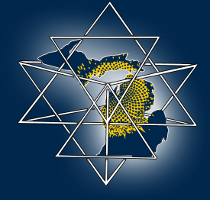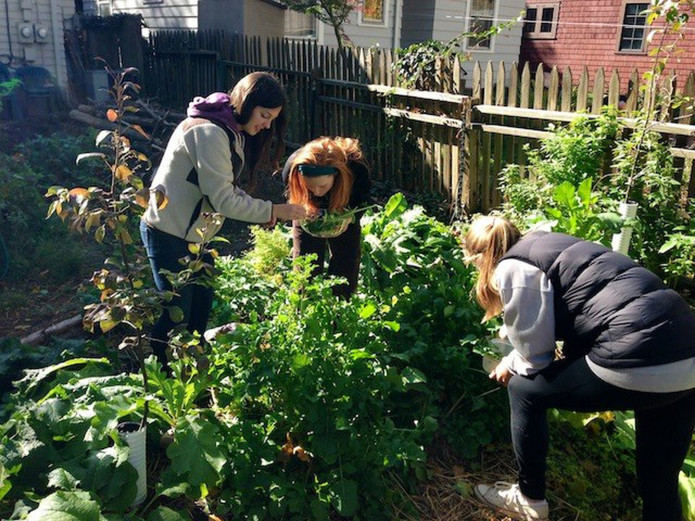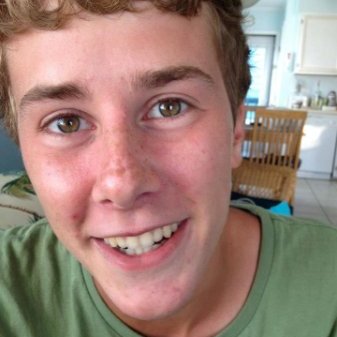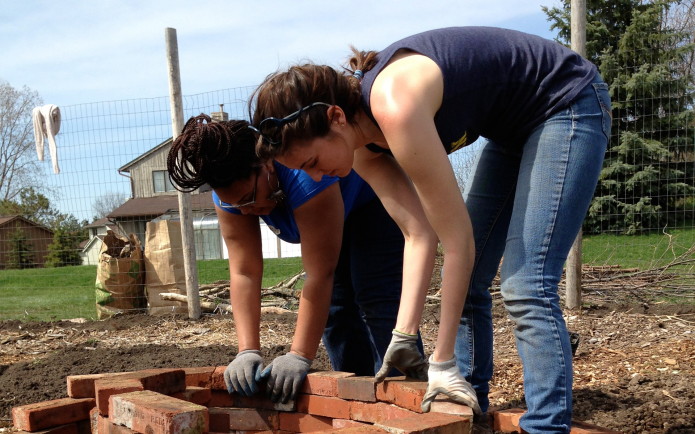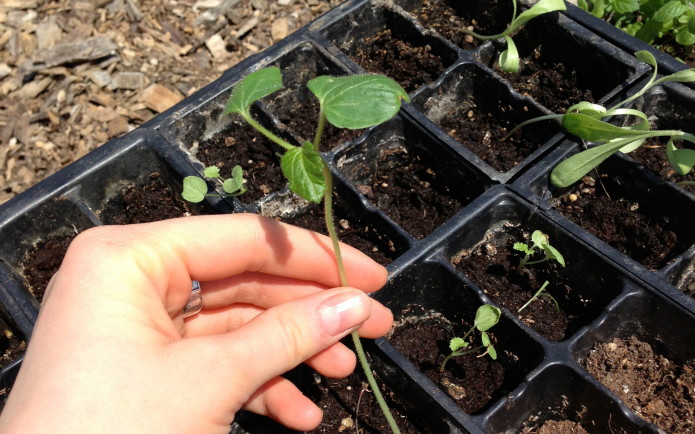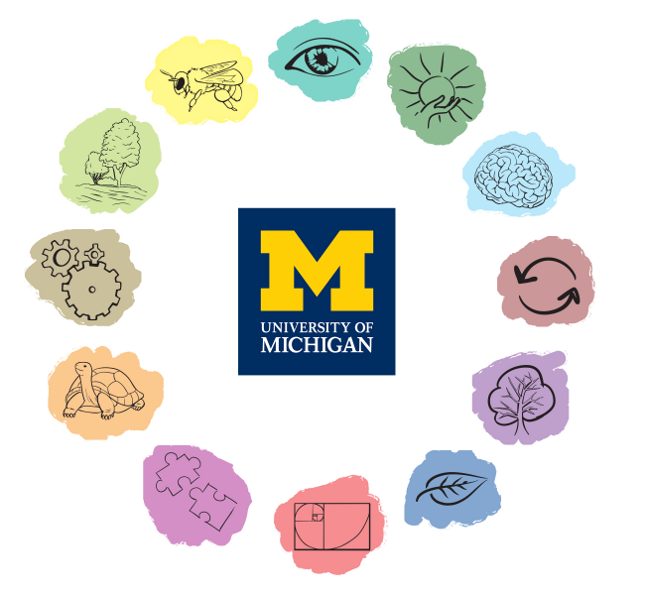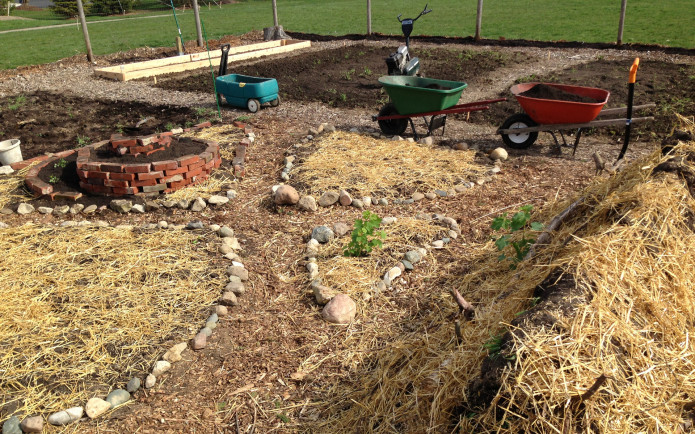Jazz 455: Creativity & Consciousness Studies
Explorations in Consciousness
Mysticism & Shamanism
Martha Winona Travers
mtravers @ umich.edu
Winter 2023/ Weds 6:00 8:00
What the people of the city do not realize is that the roots of all things are tied together. When a mighty tree is felled a star falls from the sky.
Chan Kin Viejo. Quoted in Joan Halifax,
The Fruitful Darkness
In this course we will explore two world views: mysticism & shamanism. Within these world views, certain assumptions about the nature of consciousness are embedded. Both mysticism & shamanism share the perception that individual human consciousness is part of a larger consciousness in which the entire Universe participates.
The mystic, as represented for example by the poetry of Walt Whitman, experiences a mingling of his or her small self/ego self with other beings and realities. So Whitman can write, There was a child went forth; and the first thing he saw, that thing he became.
The shaman also experiences this mingling of selves and is a healer in the tribe. Typically, the shaman is one who can move between worlds. S/he can cross from one reality to another and back again without getting caught by either reality. The shamanic perspective often includes a perception that the individual consciousness can enter into larger consciousness & in some way affect or alter reality by so doing. Hence the chant in Leslie Marmon Silkos Ceremony , The story you tell is the story that happens.
Course Texts: Stephen Harrod Buhner. Sacred Plant Medicine: Explorations in the Practice of Indigenous Herbalism (ISBN:I-57098-086-1 paperback/ I-57098-085-3 hardcover)
Jeremy Narby. The Cosmic Serpent: DNA and the Origins of Knowledge (ISBN: 0-87477-964-2)
Course Assignments:
Journal:
In this course, you are learning nature-based contemplative practice. These nature-based contemplative practices will be explained further in class. There will be regular journal assignments connected to these practices: schedule to be announced.
Essays
In addition to the journals, there will be three formal essays in this class.
Essay #1: Response to Narbys Cosmic Serpent . 5 page minimum. Due: February 1.
Essay #2: Response to Buhners Sacred Plant Medicine. 5 page minimum. Due: February 29.
Essay #3: Reflections on the Course. 4 page minimum. Due: April 11.
Describe your process of learning nature-based contemplative practices, differences
you see/experience in yourself since the beginning of the term; how your experience of the natural world has changed, new insights that you have gained, etc. Include your
thoughts, questions, comments about mysticism and shamanism as represented in the course content & in the course reading.
Attendance: Course grade is significantly dependent upon being present in every class. You may miss one class without needing to do a make-up. If you miss more than one class, in order to not have your grade affected, you must do a make-up by visiting one of the meditation/contemplative experiences listed below & by writing a one-page description of your experience; due by the last day of classApril 11. Any student who misses more than three classeseven if a make-up is done for two of themwill not receive an A.
Winter Weather Advisory.
I do not live in Ann Arbor. If we have a very snowy or icy day, check your email before class to be sure we are meeting.
ATTENDANCE MAKE-UPS:
To make up class, you can attend a sitting meditation session at one of the centers listed below. You may also email me to suggest a different contemplative practice at a different center. These are simply the ones I know about. To have the experience fulfill the make-up requirement, you need to write a one-page journal reflection describing your experience.
Please check by phoning the center before you go to confirm that the address has not changed and to find out the time when sitting sessions are open to the public. Also check to see if there is a charge or a donation. Please let me know if any of the phone numbers or addresses have changed.
1) Zen Buddhist Temple. 761-6520. Packard. Check the timing, but I believe they have a Sunday afternoon 4:00 sitting service that is often attended by college students.
2) Siddha Yoga Center. 3017 Miller Rd. 734-726-0318. I believe they have a Thursday evening sitting that is open to guests. Again, phone first to check on timing & appropriateness of your visit.
3) Jewel Heart. 1129 Oak Valley Dr. 994-3387. There may be a fee; phone first.
4) Friends Meeting House. 1420 Hill St. 761-7435. This is the Quaker meeting house. They have a Sunday morning service. The service is silent. You can ask for more information when you phone.
5) Canterbury House. 721 E. Huron. 665-0606. This is the Episcopal Church center on campus. They have a Jazz mass on Sundays. Phone for details.
Let me know if there is a center, temple, church, synagogue or other organization that offers meditation or contemplative practice to the public that you think I might add to this list.
Further Reading:
John Bakeless. America as Seen by its First Explorers
Henry Beston. Herbs and the Earth
Henry Beston. The Outermost House
Doug Boyd. Rolling Thunder: An Exploration into the Secret Healing Powers of
an American Indian Medicine Man
Walter Holden Capps, ed., Seeing with a Native Eye: Essays on Native American Religion
Barry Cottrell. The Way Beyond the Shaman: Birthing a New Earth Consciousness
William Cronon. Changes in the Land: Indians, Colonists, and the Ecology of New England
Wade Davis. One River: Explorations and Discoveries in the Amazon Rain Forest
Masaru Emoto. The Secret Life of Water
Alan Ereira. The Elder Brothers: A lost South American people and their Message about the Fate of the Earth
Joan Halifax. The Fruitful Darkness
Jamake Highwater. The Primal Mind
William Morris. Useful Work versus Useless Toil, in Political Writings of William Morris , ed. A.L. Morton.
Arnie Mindell. The Shamans Body: A New Shamanism for Transforming Health, Relationships, and the Community
John Muir. The Wild Muir: Twenty-two of John Muirs Greatest Adventures
Helen and Scott Nearing. Living the Good Life: How to Live Sanely and Simply in aTroubled World
Mary Oliver. New and Selected Poems
E.F. Schumacher. Small is Beautiful: Economics as if People Mattered
Leslie Marmon Silko. Ceremony
David Suzuki. The Sacred Balance: Rediscovering our Place in Nature
Don Alverto Taxo. Friendship with the Elements (available at www. ushai.com)
Peter Thompkins and Christopher Bird. The Secret Life of Plants
Henry David Thoreau. Walden
Alan Weisman. Gaviotas: A Village to Reinvent the World
Walt Whitman. Leaves of Grass
The mystic experience:
We two, how long we were foold,
Now transmuted, we swiftly escape as Nature escapes,
We are Nature, long have we been absent, but now we return,
We become plants, trunks, foliage, roots, bark,
We are bedded in the ground, we are rocks,
We are oaks, we grow in the openings side by side,
We browse, we are two among the wild herds spontaneous as any,
We are two fishes swimming in the sea together,
We are what locust blossoms are, we drop scent around lanes
mornings and evenings,
We are also the coarse smut of beasts, vegetables, minerals,
We are two predatory hawks, we soar above and look down
We are two resplendent suns, we it is who balance
ourselves orbic and stellar, we are as two comets,
We prowl fangd and four-footed in the woods, we spring
on prey,
We are two clouds forenoons and afternoons driving overhead,
We are seas mingling, we are two of those cheerful waves
rolling over each other and interwetting each other,
We are what the atmosphere is, transparent, receptive, pervious,
impervious,
We are snow, rain, cold, darkness, we are each product and influence
of the globe,
We have circled and circled till we have arrived home again, we two,
We have voided all but freedom and all but our own joy.
Walt Whitman
